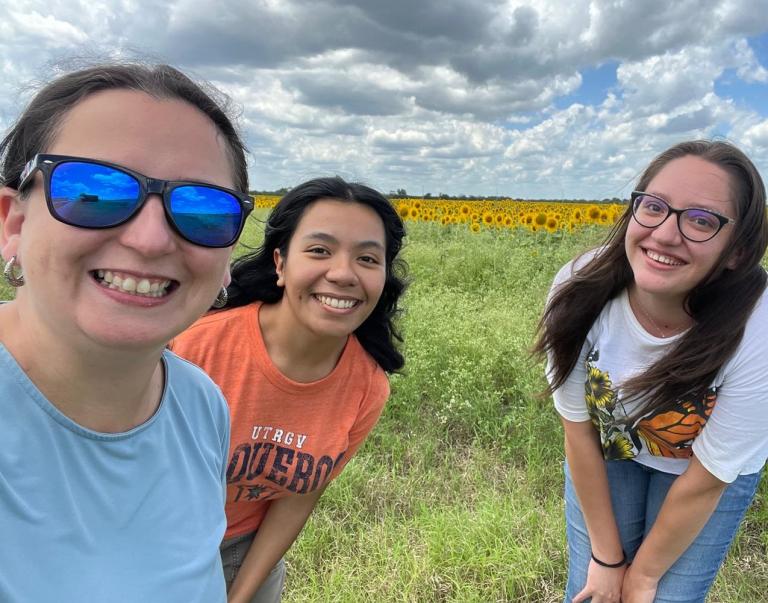
Ms. Annie Faye Woodson has been directly involved in farming and ranching in Texas for the last 76 years. At 100 years-old she stays up-to-date on Farm Service Agency (FSA) program news and still makes trips to the Fannin County FSA office to sign up for farm programs and to certify acres. It is no surprise that Woodson has seen many changes throughout her life on the farm.
"I rode in a wagon, buggy and tractor," said Woodson. "Technology is the biggest change I've seen in my lifetime."
Woodson grew up in a small community in Gober, Texas, where her parents farmed 40 acres of land. Woodson remembers long hours of picking and hoeing cotton so naturally the greatest invention for her was the cotton stripper.
Woodson taught school for six years before marrying her now deceased husband, J.T. "Red" Woodson in 1937. The school district prohibited married women from teaching, so Woodson gave up her career and joined her husband on the farm that he took over from his mother.
At that time, Woodson and her husband farmed with a team of mules they received as a wedding gift. Woodson’s mother gave them the mules. Even though Annie's husband was offered an off-farm job during the Great Depression, they chose to continue making a living tilling the soil and raising livestock.
After Woodson's husband passed away, their grandson Tommy took over as farm manager. The farm is now co-owned by Woodson and her two children. The family raises wheat, oats, hay and cattle on 1,000 acres. They participate in the Direct and Counter-cyclical program (DCP), the Noninsured Crop Disaster Assistance Program (NAP) and the Supplemental Revenue Assistance Payments (SURE) program.

While Tommy is responsible for most of the day-to-day operations, Woodson is quick to point out that she is still “the boss.” Woodson worked cattle and plowed and planted the fields up into her 90s, but now she relies on Tommy.
"I'm her right-hand man," said Tommy. "There is no other woman like her that I know of who does what she does."
Not many ranchers made it unscathed by the severe drought in 2011, but Woodson got by without selling any of the family’s 80 head of cattle. They planted all of their acres to wheat and oats in order to graze their cattle through the drought. They also received a disaster payment through the SURE program. Woodson saw improvements in this year's calf crop because they brought in new bloodlines through the implementation of artificial insemination and embryo transfer.
"We have received Farm Service Agency subsidies for eight years and that helps," said Woodson. "The farm life has been a good thing for my family."
And the Woodsons have been a good thing for rural America. Their efforts have been a family tradition on the same farm for approximately 60 years. Annie Faye Woodson is living proof that production agriculture is a not just a livelihood, but a way of life… in her case, a way of life that has spanned an entire century, and “the boss” shows no signs of stopping anytime soon. Surrounded by children and grandchildren who are guided by their matron, Annie radiates enormous pride and enthusiasm. She gives all farmers and ranchers a hundred reasons to be grateful for her example.


